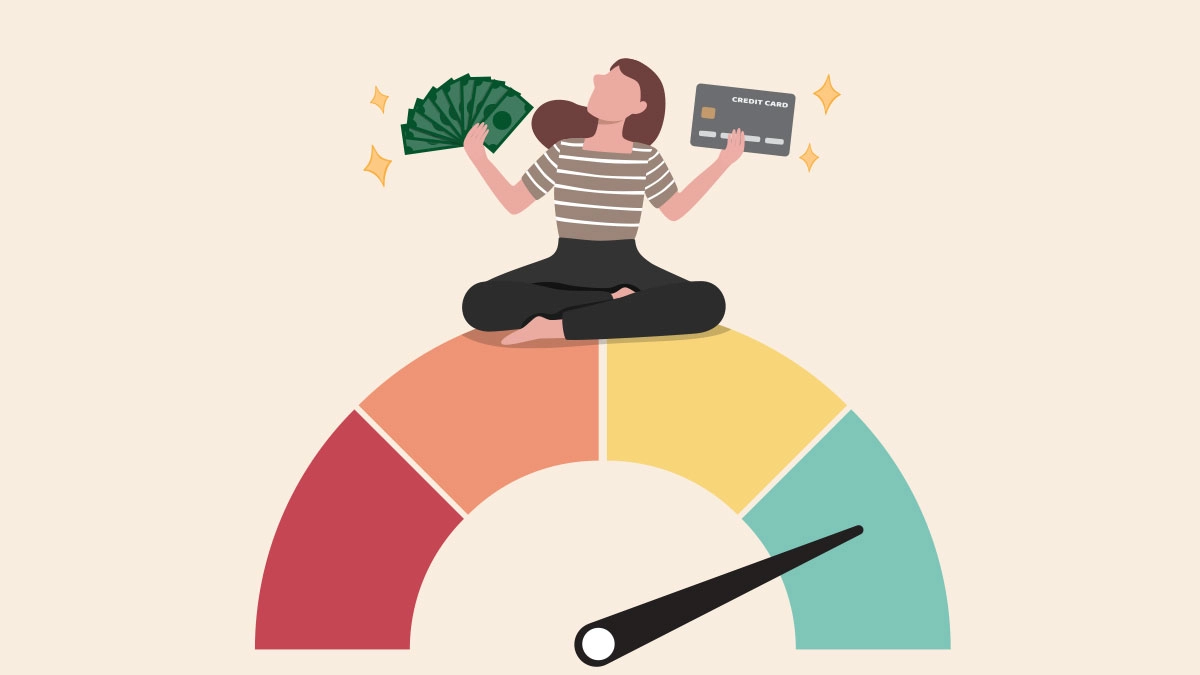A bounced cheque might feel like a setback, but it doesn't have to
define your financial journey. In fact, it can be a valuable reminder
to reassess and strengthen your financial habits. While it’s true that
cheque bounces can impact your CIBIL Score and overall credit score,
the good news is – there are clear, actionable steps you can take to
protect and even improve your credit health.
In this blog, you’ll
discover what happens when a cheque bounces, how it affects your
credit report, and most importantly, how you can take control of the
situation. Read on!

What Happens When a Cheque Bounces
When a cheque you have issued is dishonored due to insufficient
funds or technical errors, banks immediately classify it as a bounced
cheque. In India, this can lead to:
• Bank penalties for both
the issuer and receiver.
• Legal action, especially under
section 138 of the Negotiable Instruments Act.
• Negative
reports to credit bureaus, if the bounced cheque is linked to a loan
EMI or credit card payment.
If the bounce is related to a
financial obligation like a loan repayment, your lender will report it
to CIBIL and other credit bureaus. Even a single default can affect
your CIBIL Score. Check the below section to save your credit score.
Steps to Save Your Credit Score After a Cheque Bounce
If you have experienced a cheque bounce, don’t panic. Taking prompt action can help you contain the damage to your credit score.
• Settle the Dues Immediately: Pay the
amount due to the payee as soon as possible, along with any
applicable penalties. This shows that you are willing to make amends
and can prevent legal escalation.
• Inform Your Bank
and Lender: If the bounce is linked to a loan or EMI
payment, reach out to your lender. Many financial institutions are
open to resolving the issue if you act quickly and show
accountability.
• Monitor Your Credit
Report: Don’t wait for surprises – check your CIBIL Score
regularly. You can download your report from the official CIBIL website or via
financial service providers. This helps you track your financial
standing and identify any errors in reporting.
• Avoid
Repeated Bounces: This is seen as a red flag by credit
bureaus. Make sure there’s always enough balance in your account
before issuing cheques. Better yet, switch to digital payments for
scheduled transactions.
How to Improve Your Credit Score After a Setback
Even if your score has already dropped due to a cheque bounce, it’s not the end of the road. Here’s how you can work on improving your credit score gradually:
• Pay Bills and EMIs on Time: Timely
repayment is the most crucial factor in maintaining a healthy credit
score. Set reminders, automate payments, or use a budgeting
application to stay on top of your dues.
• Reduce
Credit Utilization: Try to keep your credit card usage
below 30% of the total available limit. This show lenders that you
use credit responsibly.
• Don’t Apply for too Much
Credit at Once: Multiple loan or credit card applications
in a short time can signal financial distress. Apply only when
necessary and space out your application.
• Clear
Outstanding Dues: If you have missed payments in the
past, settle them as soon as possible. Some banks allow you to
negotiate and close accounts with a ‘paid’ or ‘settled’ status –
which is better than leaving them overdue.
To Conclude
A bounced cheque might seem like a serious blow to your CIBIL Score, but with timely action and consistent financial discipline, you can easily recover. Understanding the impact, taking responsibility, and following the right steps can help you protect your credit score and rebuild trust with financial institutions. By staying informed, planning, and making smarter credit decisions, you can turn a minor mistake into a stepping-stone for better financial health.
Frequently Asked Questions
Will one bounced cheque ruin my credit score?
A single incident may not drastically affect your score, but
repeated bounces or missed EMI payments can significantly lower it.
How can I check if a cheque bounce has affected my
credit score?
You can monitor your credit report
through the official CIBIL website or other authorized financial
service providers like Poonawalla Fincorp.
Can I dispute an error in my credit report related to
a cheque bounce?
Yes, if you believe the report
is incorrect, you can raise a dispute with the credit bureau and
provide supporting documents.
We take utmost care to provide information based on internal data and reliable sources. However, this article and associated web pages provide generic information for reference purposes only. Readers must make an informed decision by reviewing the products offered and the terms and conditions. Loan disbursal is at the sole discretion of Poonawalla Fincorp.
*Terms and Conditions apply